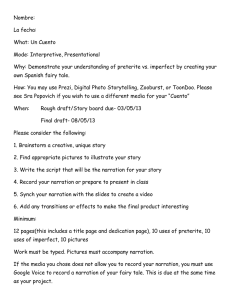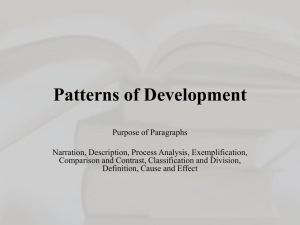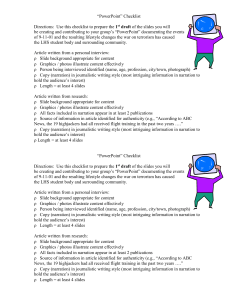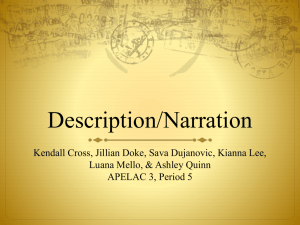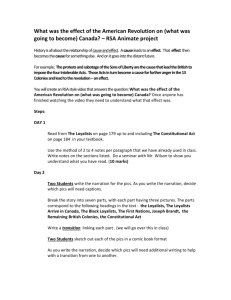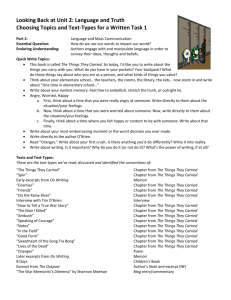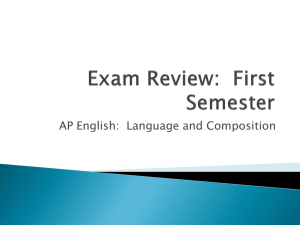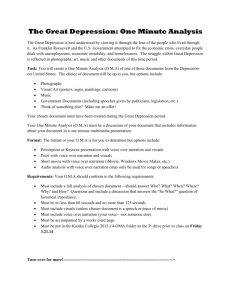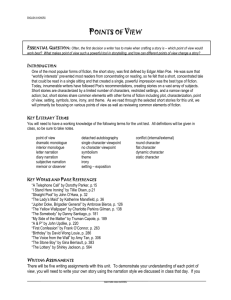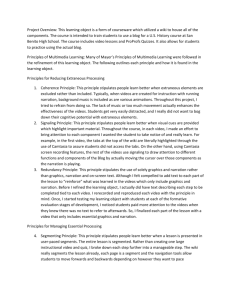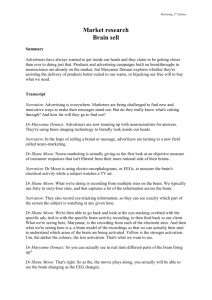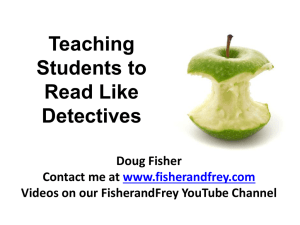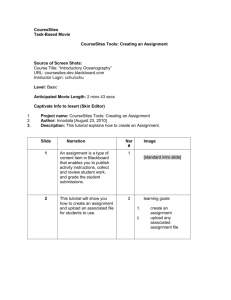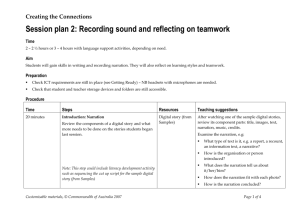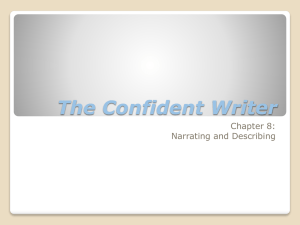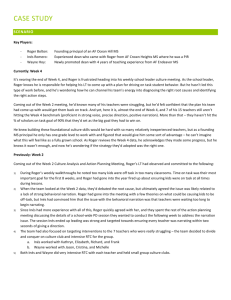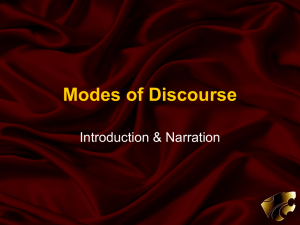Positive Narration
advertisement
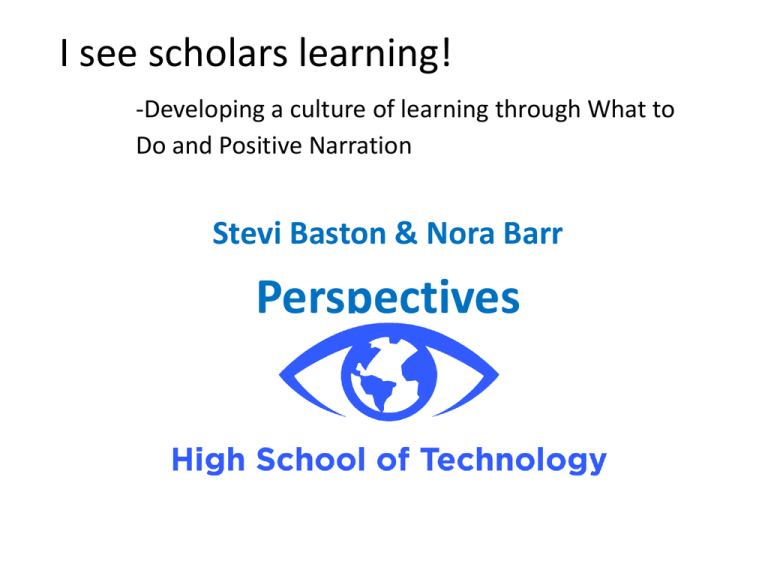
I see scholars learning! -Developing a culture of learning through What to Do and Positive Narration Stevi Baston & Nora Barr Perspectives Framing… For all three clips, answer the following questions: 1. Are the students compliant? 2. Are they happy to be there? 3. Did they learn anything? 4. How do you know? First… Second…Third. Let’s discuss 1. What was missing from clips one and two? 2. What was successful about clip three? Share out about your own plans… 1. Share out with your shoulder partner. What will you be doing in the schools? 2. Write down one or two questions or concerns that you have on the notecard. If we don’t answer during the presentation we will address at the end. Tools before you get started: Enlist the support of the teacher. (and here is what you can say.) • Thanks so much for having me to today. I can’t wait to work with you and your students, and hope you’ll help me maintain the positive culture that you create everyday. • I’ve got a great experience planned for your students today. I look forward to working with you to create a positive learning environment for all of you. Would you mind helping me pass out the nametags? Figure out a way to get names! • Plan for three minutes at the beginning of your presentation to have the students write out and wear nametags or to make table tents with names. • Knowing students names gives you an instant boost, and a quick way to grab their attention. • This will also help you get the teacher involved immediately because they can double check the names and ensure there is no hijinx afoot. What To Do • Instead of telling students what you don’t want them to do, (don’t talk, don’t fidget) be very clear with what you do want your students to do. • Directions should be specific, concrete, sequential, and observable What To Do • Set expectations using the strategy “What to Do.” • clear verbal (and visual, when possible) instructions for your scholars. • Stand still and square up, be very clear with what you expect your scholars to do. • What should it look like and sound like when scholars are meeting all of your expectations? What does What to Do sound like? • I am about to turn on a video that provides important information about your health. I will know you are ready to listen when you are sitting up straight, facing the screen, and sitting quietly. You will also have your pen handy in case you want to write down a fact that you learned. Positive Narration • Reinforce expectations using positive narration. • Don’t respond to students who are off task. • Narrate the behavior of students who are on task. (Ashley and Jada are sitting up straight.) Let’s see this in action: Positive Narration in Stevi’s class • Videotape will go here. Reflection • Why is it important to have a strong What to Do? • What are the advantages of Positive Narration? But what if I do those things and they STILL don’t comply? • First…you are new and exciting! They are more likely to comply because they want to be there. • Second, get the teacher to help you! • Third…if all else fails… redirect quietly and quickly. (Stevi will model the drive by.) Review • Enlist the teachers help • Get names • Use What to Do to set behavior expectations. • Use positive narration to reinforce those expectations. Now let’s practice • First, we are going to script out what we’ll say. (We are here to help! ) • Use the template that Stevi created to map out how the What to Do and Positive Narration will look in your presentations. • If you don’t have your plans you can practice with the model provided. Role Play • Next, work with your shoulder partner to practice out loud what you’ll actually say. • Brave volunteers will get Valentine love (and candy) if they practice in front of the room. Questions • Next, work with your shoulder partner to practice out loud what you’ll actually say. • Brave volunteers will get Valentine love (and candy) if they practice in front of the room.
